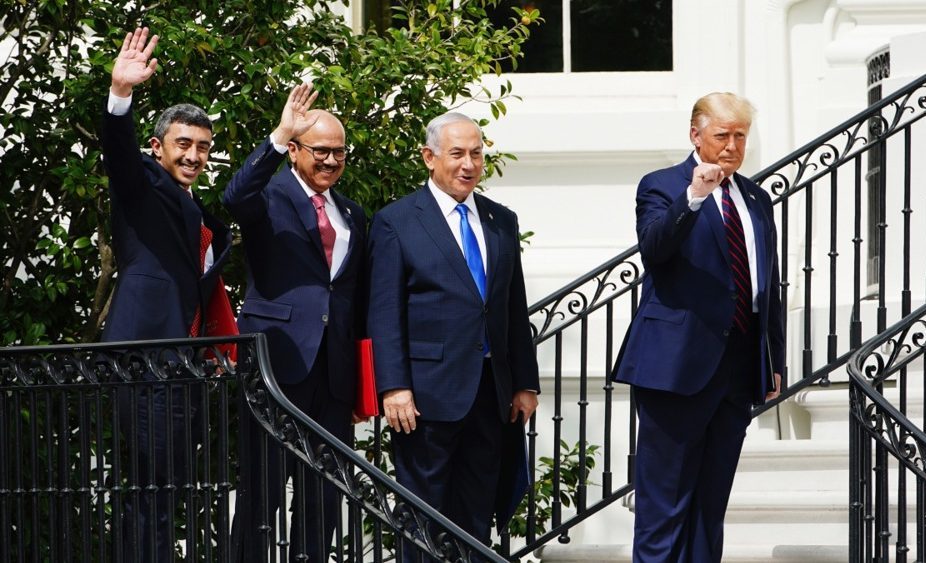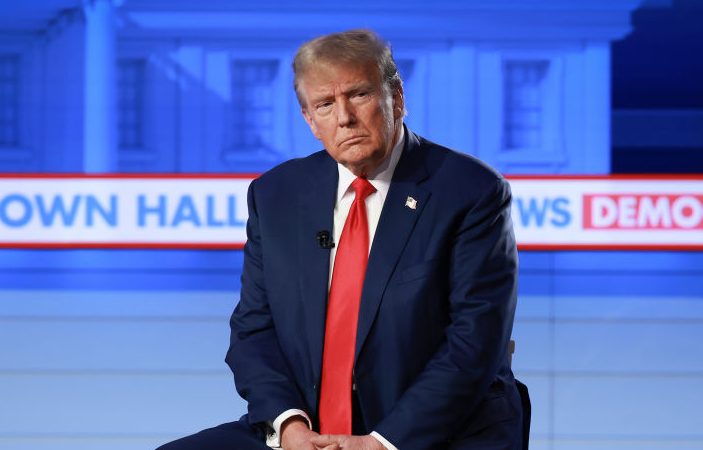Much has been made recently over the prospective return of Donald Trump and his transactional style of conducting foreign relations. Certainly his implied threat to abandon NATO allies who do not meet alliance spending goals suggests the transactional aspect of his worldview remains strong.
Roughly speaking, says Trump, “pay up or face the Russians alone,” which smacks more of a protection racket than a pact for common defence. Our European allies rightly insist that the alliance is not held together by a simple “cash for service” arrangement, but by a unified perception of external danger from hostile authoritarians.
After a thirty year respite when NATO endured despite the absence of a unifying threat, the old monster is again loose in the Kremlin, and the alliance has been drawn into a proxy war against Russian aggression in Ukraine. This is not an ideal time to parse relative contributions and threaten the retaliatory withdrawal of alliance guarantees.
However, one must also consider that Mr Trump’s hyperbolic language always draws hyperbolic responses from Europeans, who have variously predicted the end of NATO or even an American civil war should he be reelected.
They neglect to recall that Obama’s gentle pleadings after the 2 per cent of GDP goal was adopted in 2014 came to naught, while Trump’s fiery condemnations prompted significant increases in European defence spending.
European outrage over his remarks also conveniently conceals the very real dereliction of military spending in Europe since the end of the Cold War. Consider the favorite target of Trump’s rage, Germany. In 1989 the Federal Republic spent over 2.5 per cent of GDP on defence, and now just clears 1.3 per cent.
In 1989, Germany fielded 4,200 Leopard tanks; today about 300. This was not a peacetime drawdown, this was a strategic collapse. It will take many years to reconstitute the Germany military into a credible deterrent force that other European states could rely on. Poland now provides the foremost conventional counterweight to Russia in Central Europe, and the best example for “Trump-proofing” the alliance.
Donald Trump did not spend his formative years among Washington foreign policy elites. He made his bones as a Queens real estate developer, where exactly nothing is given for a higher principle, but only as a means of extracting an equivalent concession. Many would conclude that this habit renders him unsuited for high office.
Others could reasonably argue that he and the governing majority in the House of Representatives represent a growing American reluctance to spend more defending wealthy Europeans than they are willing to spend defending themselves. Making the case to a restive electorate that a war between non-NATO Ukraine and Russia is America’s war rather than Europe’s will require a far more gifted orator in the White House than the present incumbent. It may not be possible absent a latter-day FDR, who has yet to appear in the current primary season.
Pounding the table and deploying the harsh language common in “frank” diplomatic dialogue has its place, and can often unstick negotiations between allies. Even at the height of the Cold War, NATO’s Defence Planning Committee struggled to hold alliance members to their promised force goals, meaning the spending, equipment and manpower NATO needed to fulfill its agreed military objectives.
US spending and forces would then fill the gaps left by our delinquent allies. Rarely was American disapproval voiced in public for fear of emboldening the Soviets. But Trump is different. He reserves his harsh language for the public sphere, while his actions in office showed sustained budgetary support for NATO, and military support for Ukraine.
On both sides of the Atlantic there is a studied disregard for the innate transactional basis of any military alliance. Each party must get something of value in exchange for their commitment to a common defence, or the arrangement will not endure.
US defence spending allowed European states to devote more to social programmes, a clear benefit, so what did the US get other than expensive client states? In strictly monetary terms, not much: NATO has always imposed a disproportionate burden on the United States. America provides the bulk of NATO’s military spending, and the precious nuclear guarantee that makes Article 5 a fearsome reality.
What the United States did obtain in exchange for forces committed at great cost to the defence of Europe, was political primacy in the Western world. The US acts as the unquestioned leader of the alliance, whose military command has always been led by an American four star officer.
We purchased what scholars call the privileges of hegemony: leadership of an alliance that is stronger than our national power alone would warrant. We lead a community of wealthy, (mostly) liberal states that share the general goal of a world run according to agreed rules rather than brute strength.
Is shifting a greater defence burden onto our allies worth the loss of this political primacy in Europe? Foreign policy elites in Washington are aghast at even raising the question; a hard-nosed real estate developer will not only ask it, but may supply answers unwelcome in Foggy Bottom.
A looming US budget crisis may force both this difficult question and painful answers on Washington no matter who is elected in November. Fiscally driven isolationism is not out of the question if the US government cannot rein in its bloated, multi-trillion dollar annual deficits.
Should he again become president, Mr Trump must learn that transactional politics work both ways, and ideally to the benefit of both Europe and the United States.
If Trump is committed to spending less on NATO and compelling our allies to take on more of the responsibility for Europe’s defence, then it is likely that Europe will rightly wish to share more of the alliance leadership. We should not shy away from the opportunity to hand greater responsibility to our allies.
The prospect of a British or Polish general as Supreme Allied Commander isn’t that far-fetched, particularly if Europe becomes the primary military sponsor of an eventual Ukrainian victory. It appears likely that open-ended American support for Ukraine is winding down, and will remain hostage on Capitol Hill to a number of domestic budgetary needs.
Shifting the military burden to our allies and sharing NATO’s military leadership with them is therefore realistic and prudent. Whoever is in the White House in 2025 should seize the opportunity to reshape the alliance, and yes, forge a new transaction at the heart of NATO: greater European military commitment to the partnership coupled with greater European leadership of the alliance. The US will remain the nuclear guarantor of an alliance led and funded primarily by Europe.
A great transactional benefit to the US of this transformation would be the freedom to devote more military resources to the Pacific, and the pressing need to deter Chinese moves against Taiwan, the Philippines or Japan. A mutually beneficial evolution of the Western alliance makes this transition possible, if Europe is willing to assume the leading role in its own defence.
Russia will be no match for a Europe that resolves to devote a greater portion of its wealth to its military forces and defence industrial base. Should Germany devote more than 2 per cent of GDP on defence, it alone would have a defence budget nearly 15 per cent larger than current Russian defence spending, which tripled since the war began.
Effective deterrence of whatever new plans are hatched in the Kremlin is well within the capacity of European NATO. If harsh words and hyperbolic threats are required to expedite this transition, and reform the transactional basis of the NATO alliance, then the next Administration must use them.





An historic US security break with Europe is becoming increasingly likely – regardless of whether Donald Trump or Joe Biden is in the White House